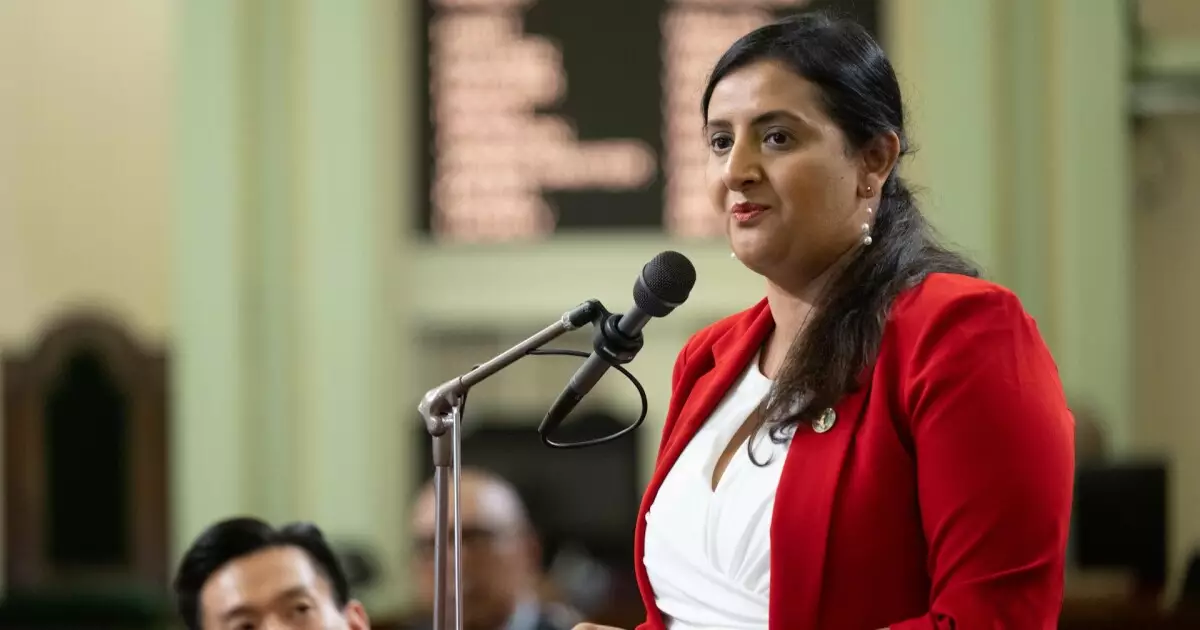California Governor Gavin Newsom’s recent decision to sign Assembly Bill 100, which allocates $2.8 billion to address unforeseen Medi-Cal costs, raises more questions than it answers. While the intention behind the funds may be framed as a necessary response to healthcare challenges faced by the underprivileged, the approach taken is alarmingly reckless. With California’s budget attempting to juggle multiple urgent needs, focusing such a colossal amount on Medi-Cal for undocumented immigrants is a blatant deviation from prudent fiscal management.
With the state projecting a revised $11.3 billion in spending, one wonders if this is truly the best allocation of resources when so many competing priorities exist. Issues surrounding homelessness, education, and infrastructure painfully await funding considerations, yet the focus here is almost exclusively on a program laden with its own financial complications. Is this responsible governance?
The Medicaid Debate: Necessity or Burden?
Republicans, such as Assemblymember Carl DeMaio of San Diego, make salient points in their criticisms of the Medi-Cal expansion, especially in terms of its financial sustainability. DeMaio has vocally opposed extending health benefits to undocumented immigrants, arguing that it merely presents a “gift of public funds” and oversaw the costs ballooning from an initial $6.5 billion estimate to a staggering $9.5 billion. This disparity demands accountability, and yet the Democratic majority appears undeterred.
The argument behind providing undocumented immigrants with Medi-Cal benefits hinges on public health. Proponents assert that covering these individuals ultimately saves the system by diverting costs from emergency care. However, the counterargument presents a valid concern: how long can this spiral of escalating costs continue without leaving taxpayers bearing the financial brunt? As assemblyperson Jasmeet Bains suggests, the conceptualization of undocumented immigrants in the healthcare system presents non-negotiable humanitarian angles, but these ideals clash with fiscal realities that often seem forgotten amid lofty rhetoric.
Challenging the Status Quo: Medi-Cal’s Future
The projections surrounding Medi-Cal expenditures are staggering. General fund spending has escalated to $42.1 billion over six years, augmenting total costs to an excess of $188.1 billion. These figures are troubling, especially in a state renowned for both its unprecedented wealth and glaring socio-economic disparities. While Democratic lawmakers staunchly defend the need for universal healthcare, the approach taken under Newsom’s administration appears dangerously unsustainable.
We must question the feasibility of an expansion that includes non-citizens when substantial gaps exist in care for those who have been a part of the system, or are on the brink of being pushed out of it altogether. It seems that policymakers are treating Medi-Cal less like a safety net for vulnerable populations and more like an expansive welfare program, one which essentially encourages reliance without due diligence on outcomes or costs.
Wildfire Funding: A Secondary Concern?
In addition to tackling Medi-Cal spending, AB 100 allocates funds to support local governments affected by wildfires and emphasizes forest resilience efforts. While this aspect of the bill deserves commendation—California’s ongoing struggle with wildfires is all too visible—one cannot help but feel that this is a mere palliative to distract from the larger fiscal mismanagement at play with Medi-Cal.
Signing an executive order to streamline wildfire safety projects shows a recognition of urgency, yet it feels almost like a lullaby for anxious constituents grappling with the visible and often catastrophic fallout from these disasters. The seemingly piecemeal approach to allocating these funds raises a question: can the same administration tackling these massive issues truly expect to manage an increasingly burdensome Medi-Cal budget without severe repercussions?
Ultimately, while the Democrats pursue a noble cause in providing health coverage for all, the current trajectory under Governor Newsom is fraught with fiscal peril. The optimism surrounding Medi-Cal’s expansion appears to overshadow the sobering reality of its growing costs, a reality that could leave Californian taxpayers stranded amidst an ocean of fiscal irresponsibility.

